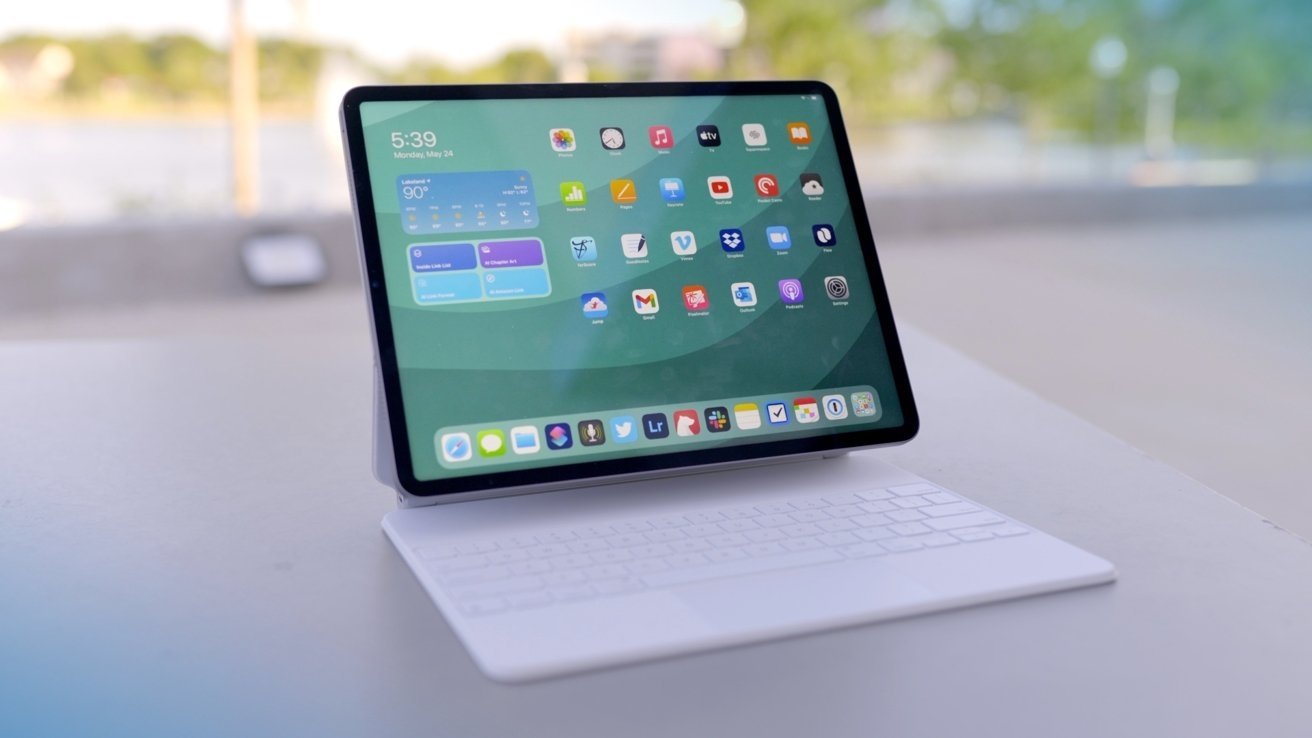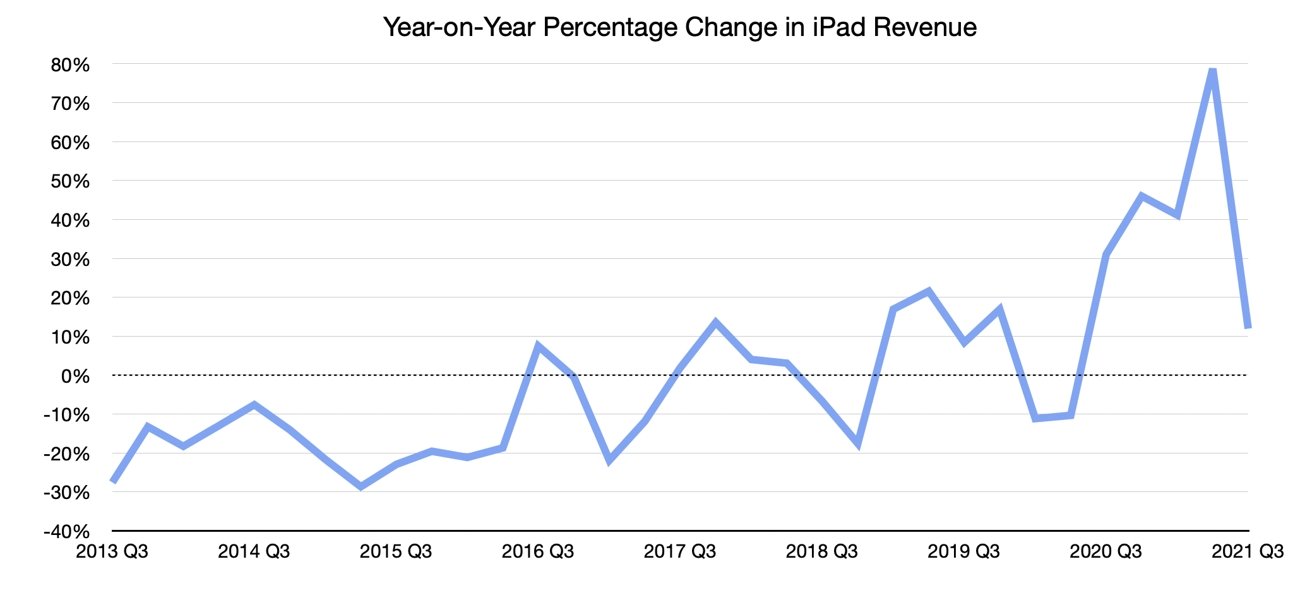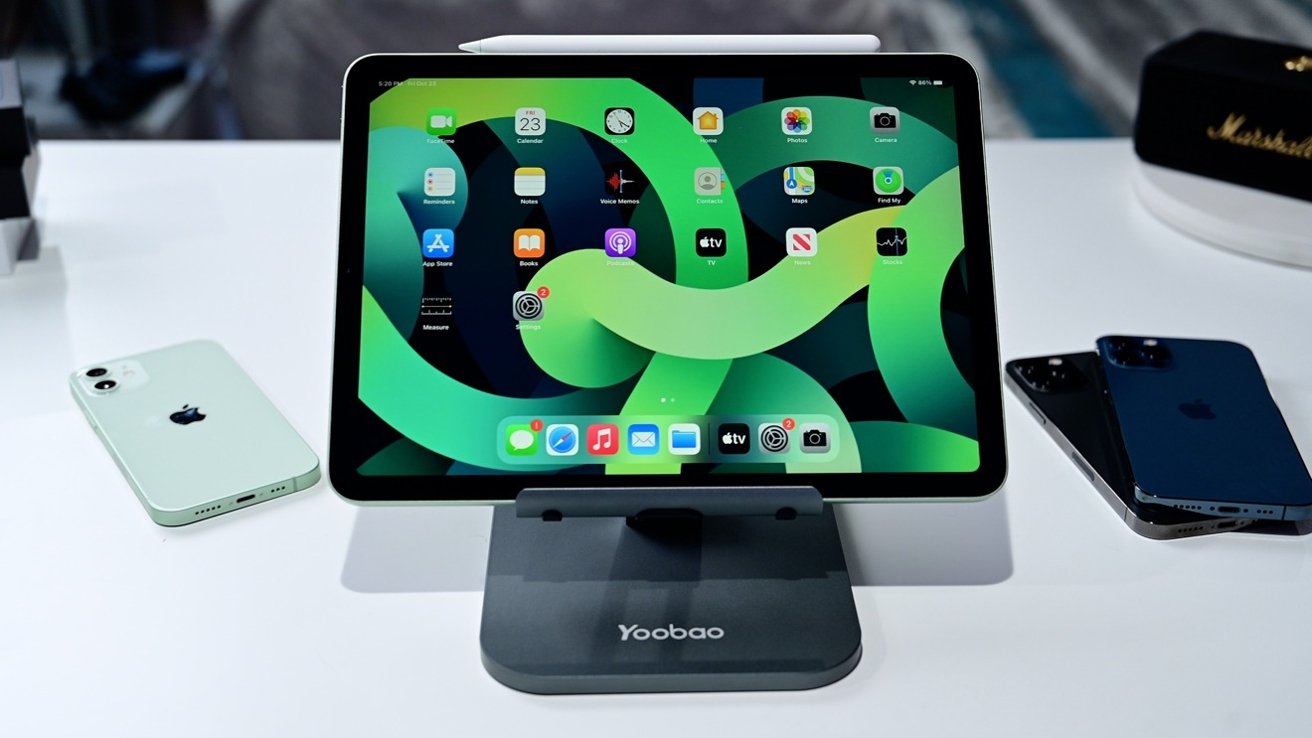Apple reported Q3 2021 iPad revenue at $7.4 billion, an increase of 12% in dollar-value. Did the M1 supercharge iPad sales volumes, or is something else going on?
In July, Apple announced yet another record-breaking third quarter. As usual, the numbers were biblical, and far outpaced the forecasts of analysts and industry observers.
For the quarter, Apple's total revenue was $81.4 billion, which represents year-on-year growth of 36.3%. That's just $3 billion behind Q1 2019, with the first quarter traditionally being Apple's strongest of each year.
Nestled in the middle of that huge figure is iPad sales, which for the quarter almost touched $7.4 billion in revenue. For the iPad, this represents a continuation of what was started in 2020.
The Q3 2021 iPad revenue is up 11.9% from the same quarter last year. That year-ago quarter was itself an improvement of 31% year-on-year, brought on by COVID-19 and work-from-home initiatives.
The increases in the quarter across both years are a marked departure from previous years, as iPad revenue has seemingly plateaued. It's likely that when people buy an iPad, they hold on to it for quite a few years, probably for longer than the iPhone on average.
During the quarter, Apple brought out a refreshed iPad Pro range, this time incorporating the M1 that is in use by the Apple Silicon Macs. With the current iPad Air having been on the market for a while now, and the lack of an updated iPad mini, it's worth asking whether the M1 helped to drive iPad growth in the quarter.
There's probably a simple answer to that: No.
Other iPads probably did more
We can't really say this with any certainty, as Apple doesn't provide a breakdown of sales by device. Apple's decision to eliminate units sale counts also makes it nigh on impossible to extrapolate the average selling price, which would give more of a clue as to where the sales concentrate.
However, it's more probable that the revenue raise is due to a combination of the brilliant iPad Air and the super-affordable 8th-generation iPad. The M1 is still a really tough sell to consumers, and part of it is due to the iPad Air.
While the Air exists, it's hard to justify recommending an iPad Pro over it. Sure, it doesn't have ProMotion, it uses Touch ID instead of Face ID, it's a bit less powerful and it has a smaller screen, but that's about it.
You get most of the performance in a device that's much cheaper. At least before you start adding things like the Magic Keyboard.
It's likely that many people who were holding off from upgrading their iPad saw the iPad Air and thought it was significant enough to pull the trigger. It's plausible that many potential upgraders jumped to the iPad Air since October, because it was different enough to warrant the purchase.
The current iPad may be an old-fashioned design, but it's driving revenue because it is extremely cost-effective. It is a really good deal for anyone needing an iPad, especially in the education and other volume-purchasing markets.
Some people may not be fussed about having a smaller bezel design or the latest features, and simply want an iPad, not necessarily one that pushes the boundaries. That sort of consumer doesn't want to spend too much money.
Mobile M1 needs to be pushed
The M1 chip is brilliant, has proven itself to be superb in Macs, and it has earned its place in the Mac ecosystem. At the moment, it has this odd role in the iPad Pro lineup that can't really push the performance of the chip.
A release of Final Cut Pro or Logic Pro for iPadOS that could really take advantage of the M1 may help justify its place in the lineup. It may also pull more creative professionals over to the new models
If that happens in the next 12 months, then iPad revenue growth could really skyrocket.
This video was produced by Mark Ellis Reviews, at the invitation of AppleInsider
 AppleInsider Staff
AppleInsider Staff









-m.jpg)






 Malcolm Owen
Malcolm Owen

 Amber Neely
Amber Neely
 Christine McKee
Christine McKee


 William Gallagher
William Gallagher
 Chip Loder
Chip Loder


-m.jpg)






8 Comments
They need to run TVs ads
M1 iPads are pricey.
TBH I’m looking at the Pro for the 12.9 inch screen. Yes the M1 is great, but it’s really going to be running at idle most of the time for me. I also like the increase in RAM. That will let me have more layers on larger canvases. However that goes back to the larger screen with more area for drawing. I looked at the Air last winter. I really REALLY thought about it. But I waited for the new Pro models. FaceID will be wonderful. I’m not sure I’ll really notice the difference with the miniLED backlight. The whole system though will be a big step up from my ’17 Pro. But the Air would have been a big improvement too. For me it’s all about the size.
But we’ll see what I’m thinking this fall when it comes time to place my order. If I decide at that point I’m ok with 11 inches then I’ll likely go with this years Air.
Posted this before, but the barrier to things like Final Cut Pro or Logic Pro likely boils down to this: customers that already own those titles on Mac would expect the iPad version to be a freebie, while those that didn't would be expecting the iPad version to be cheap relative to desktop.
iPadOS simply isn't powerful enough to take advantage of the M1. There are no apps that are able to take advantage of it because Apple won't allow them. Open source scientific command line utilities, engineering and CAD programs are either non-existent or heavily hobbled. Being able to have only one app processing at once (which gets killed if backgrounded due to too much CPU usage) doesn't help things either. Very few apps outside of games on the App store are limited by CPU power.